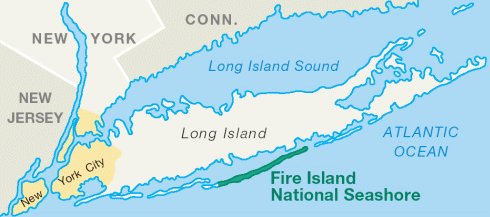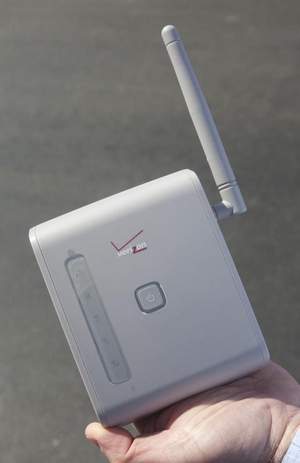 Verizon Communications has filed a formal tariff obtained by Stop the Cap! with the New York State Public Service Commission (PSC) that would establish conditions under which it can abandon its wired network in favor of wireless-only service.
Verizon Communications has filed a formal tariff obtained by Stop the Cap! with the New York State Public Service Commission (PSC) that would establish conditions under which it can abandon its wired network in favor of wireless-only service.
If approved, Verizon will be able to drop wired landline and broadband service in any area of the state if the company can:
- certify that a substantial portion of its facilities in an area are destroyed, rendered unusable, or beyond reasonable repair, or,
- demonstrates that the use of wireless to serve specified customers, or groups of customers, is otherwise reasonable in light of the geographic location, the availability of competitive facilities to serve those customers or groups of customers, or in light of other criteria acceptable to the PSC.
Verizon is using the case of Fire Island, N.Y., to attempt a rewrite of New York’s communications tariffs. Although eastern Fire Island suffered some damage from Hurricane Sandy, a considerable amount of Verizon’s infrastructure further west did not survive the storm. Verizon wants to abandon that wired infrastructure, avoid spending money to upgrade the island to fiber optic service, and switch customers to a voice-only, wireless service called Voice Link that would leave Verizon’s DSL customers without broadband.
 Although Verizon has currently only applied to drop wired service to the “western portion of Fire Island,” the tariff would set conditions under which Verizon could abandon its landline network for financial reasons in other portions of the state. For example, Verizon could argue that its declining number of rural landline customers are no longer financially viable to serve because of wired network upkeep and upgrade expenses. Verizon’s application would also allow it to abandon older facilities where competitive services (wireless or wired) are available, and allow Verizon’s wireless products to be considered a suitable alternative to meet universal service requirements.
Although Verizon has currently only applied to drop wired service to the “western portion of Fire Island,” the tariff would set conditions under which Verizon could abandon its landline network for financial reasons in other portions of the state. For example, Verizon could argue that its declining number of rural landline customers are no longer financially viable to serve because of wired network upkeep and upgrade expenses. Verizon’s application would also allow it to abandon older facilities where competitive services (wireless or wired) are available, and allow Verizon’s wireless products to be considered a suitable alternative to meet universal service requirements.
Verizon says it will offer the same basic calling packages that landline customers can get at the same or lower prices. The company also promises to adhere voluntarily to PSC regulations on customer protection, customer complaints, service quality, safety and reliability.
But Verizon does not promise to offer a functionally equivalent wireless replacement for the landline.
For example, Verizon only promises to support voice calls, access local and toll calling, emergency services with E911 capability, assistance services, telecommunications relay services, and directory listings, including the option of non-published service.
Data services are not supported. Current Verizon DSL customers with unlimited use plans will be forwarded to Verizon Wireless to sign up for the same limited use wireless broadband plans already available in the rest of the country (the ones that charge $50 for up to a handful of gigabytes of monthly usage, depending on the plan). Business customers will need to buy new equipment and sign new contracts with Verizon Wireless (or other wireless carriers) to process credit card transactions. Although some voice calling features are supported, an exact list remains unavailable.
In the event of a power failure, a built-in backup battery will provide up to two hours of talk time, after which the line will stay out of service until commercial power is restored.

Verizon Voice Link: The company’s landline replacement, works over Verizon Wireless. (Asbury Park Press)
Because Verizon Wireless’ existing cellular network serving Fire Island is inadequate, the company has agreed to upgrade and improve service to the island.
Verizon argues its wireless solution is the only answer that makes sense.
“The cost of replacing facilities is very high, and if hurricanes or other severe storms occur in the future, there is a significant risk that the newly installed outside plant would again be damaged or destroyed,” argues Verizon’s Manuel Sampedro, who is overseeing Verizon’s service restoration effort on Fire Island. “Wireless service is already the predominant mode of voice communication on the island.”
But in the event of another major storm, Verizon’s wireless facilities could also be knocked out of service, potentially for weeks, as happened during Hurricane Sandy.
In the nearby coastal city of Long Beach, N.Y., every cell tower in the area failed because of the storm . City Manager Jack Schnirman told the FCC at a recent hearing wireless proved no more robust than any other technology, and described a frustrating experience attempting to reach representatives from major cell phone carriers about when exactly service could be restored.
“Long Beach reached out to one of the carrier’s customer support departments, explained the devastation and inquired about the carrier deploying a cell on wheels,” Schnirman said. “The customer service rep replied, ‘you might want to look that up on the Internet, I don’t know what that is.’ Well obviously, ironically, we had no Internet at that time.”
Customers did not fare any better.
“There was one woman in particular who passed away, of natural causes, an elderly woman,” Schnirman said. “And her daughter had to walk literally a mile and a half from her home to police headquarters just to say, ‘Listen, my mom has passed, and I thought I should tell somebody.’ ”
Wireless carriers are not obligated to provide backup service in the event of a power failure. An FCC effort to set minimal standards for backup cell service was met with legal threats by the wireless industry and the FCC backed down.
Verizon is in a hurry to win approval of its tariff change, requesting its filing be approved and take effort on less than 30 days’ notice with a waiver of the requirement that it publish a public notice about the change in area newspapers.
[flv width=”640″ height=”380″]http://www.phillipdampier.com/video/Reuters ATT Verizon try to put end to landline telephone era 4-5-13.flv[/flv]
Reporter David Cay Johnston says Verizon and AT&T’s efforts to abandon the landline are no accident. They are part of a larger lobbying effort to abandon company obligations under the “carrier of last resort” policies that guarantee every American access to quality landline telephone service. Wireless phone service is unregulated. Johnston isn’t the only one reporting on this story. Stop the Cap! has covered it repeatedly since early 2010. (2 minutes)

 The company is mailing letters to affected television subscribers advising them to get a Time Warner Cable DVR, traditional set-top box, CableCARD or Digital Adapter (DTA). For secondary televisions, Time Warner’s new DTA for downstate New York is the Cisco DTA 170HD, which supports both High Definition and Standard Definition channels and digital-only QAM tuning up to 1GHz. This model is also capable of providing HD premium channels, which are currently not available to customers with earlier generation DTAs. It is unknown if Time Warner will support that functionality.
The company is mailing letters to affected television subscribers advising them to get a Time Warner Cable DVR, traditional set-top box, CableCARD or Digital Adapter (DTA). For secondary televisions, Time Warner’s new DTA for downstate New York is the Cisco DTA 170HD, which supports both High Definition and Standard Definition channels and digital-only QAM tuning up to 1GHz. This model is also capable of providing HD premium channels, which are currently not available to customers with earlier generation DTAs. It is unknown if Time Warner will support that functionality.

 Subscribe
Subscribe A California federal judge has rejected a class action case against Comcast for allegedly hiding modem fees as high as $15 a month when signing up new customers.
A California federal judge has rejected a class action case against Comcast for allegedly hiding modem fees as high as $15 a month when signing up new customers. Judge Armstrong wrote that Diacakis should have come to court with evidence beyond the spoken promises of a handful of Comcast salespeople the plaintiff identified only by their first names. She was swayed by Comcast’s arguments:
Judge Armstrong wrote that Diacakis should have come to court with evidence beyond the spoken promises of a handful of Comcast salespeople the plaintiff identified only by their first names. She was swayed by Comcast’s arguments:
 Verizon Communications has filed a formal tariff
Verizon Communications has filed a formal tariff  Although Verizon has currently only applied to drop wired service to the “western portion of Fire Island,” the tariff would set conditions under which Verizon could abandon its landline network for financial reasons in other portions of the state. For example, Verizon could argue that its declining number of rural landline customers are no longer financially viable to serve because of wired network upkeep and upgrade expenses. Verizon’s application would also allow it to abandon older facilities where competitive services (wireless or wired) are available, and allow Verizon’s wireless products to be considered a suitable alternative to meet universal service requirements.
Although Verizon has currently only applied to drop wired service to the “western portion of Fire Island,” the tariff would set conditions under which Verizon could abandon its landline network for financial reasons in other portions of the state. For example, Verizon could argue that its declining number of rural landline customers are no longer financially viable to serve because of wired network upkeep and upgrade expenses. Verizon’s application would also allow it to abandon older facilities where competitive services (wireless or wired) are available, and allow Verizon’s wireless products to be considered a suitable alternative to meet universal service requirements.
 The Heeley family have been Cox customers for over 15 years, buying cable television, broadband, and phone service that costs them nearly $200 a month.
The Heeley family have been Cox customers for over 15 years, buying cable television, broadband, and phone service that costs them nearly $200 a month.